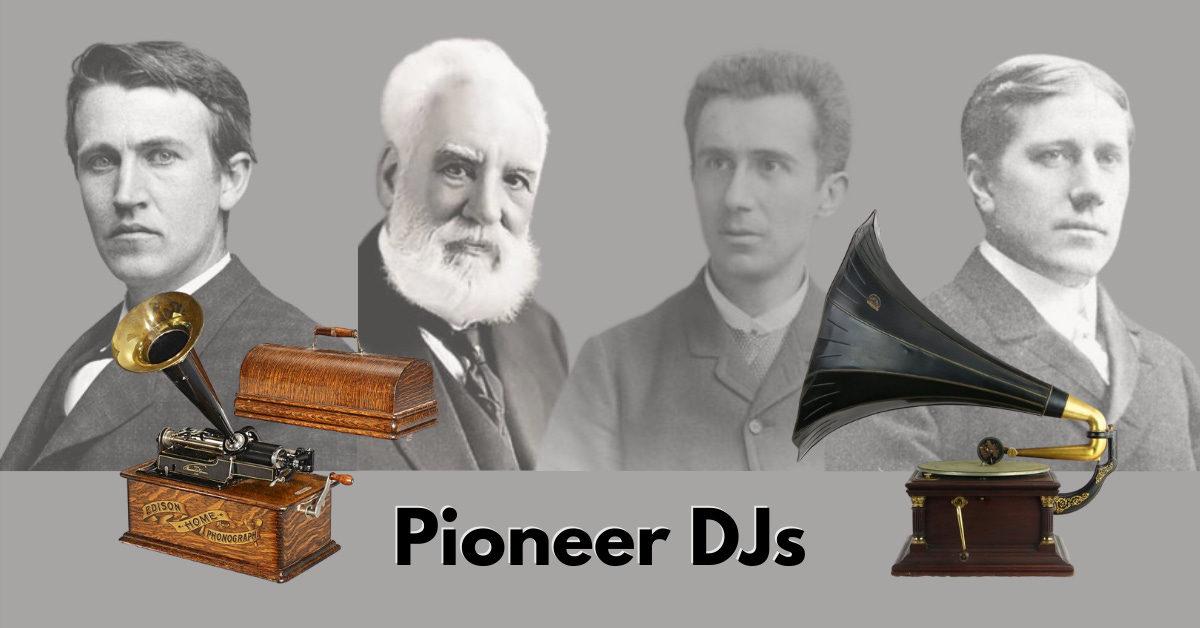Pioneer DJs
From Phonograph to Gramophone
How did we get here
The progression and pioneering of recorded music
What if I told you the world's first DJ was practically deaf. Thomas Edison created the first-ever recording device for audio reproduction. The apparatus used a tinfoil cylinder and would appear extremely primitive today. Edison said that he never trusted the invention because it worked the first time.
You might not think of Edison's influential figure in history as a Disk Jockey, but if it were not for his pioneering work, we certainly would not have DJ technology.
What's crazy is that Edison could hardly hear. He was known to bite into a piano to experience music.

Before the Phonograph, the only way to hear music was to use sheet music and instruments. If you think about it, this was less than 200 years ago. It might seem like a long time, but in the grand scheme of things, technology started racing ever since.
The next improvement in Edison's technology was Alexander Graham Bell's Graphophone. It was similar to the Phonograph, but it used wax cylinders.
Ten years later in 1887, a man by the name of Emile Berliner patented the grandfather of the modern-day turntable; The Gramophone. The revolutionary idea was the use of a flat disc. The disc made it possible to mass-produce music because, before that, each cylinder had to be individually cut. Emile worked with Eldridge R. Johnson to constantly improve the quality and the rest is history.
All of these great creators had many inventions, but without the progression of a flat disk music player, we would not have the technology that we have today.
Turntablism has come a long way since the Gramophone, but we must stop for a moment to pay respect for the pioneers that laid the foundation for the modern-day DJ.

